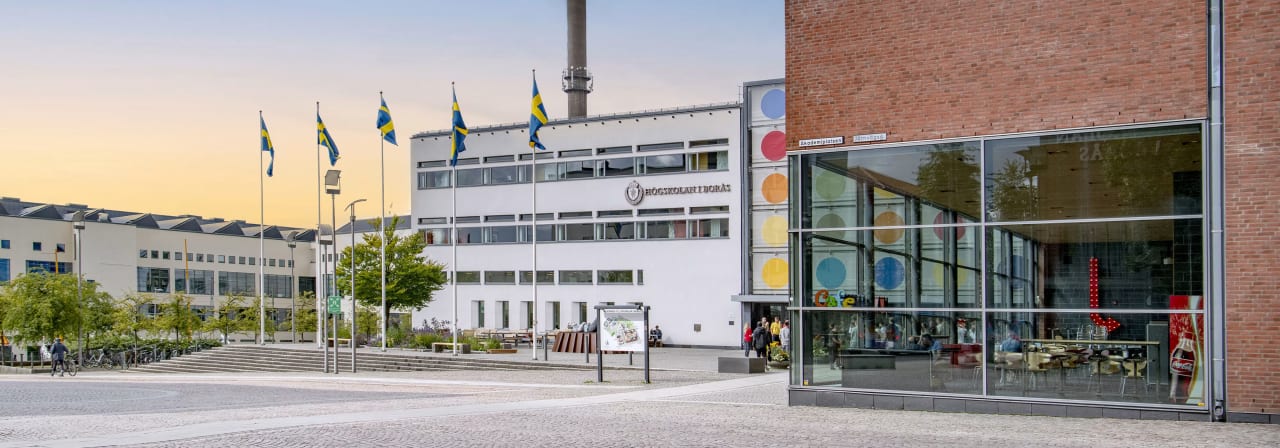
Master Programme (Two Year) in Textile Technology and Engineering
University of Borås

Key Information
Campus location
Borås, Sweden
Languages
English
Study format
On-Campus
Duration
2 years
Pace
Full time
Tuition fees
SEK 258,000 *
Application deadline
Request info
Earliest start date
Aug 2024
* EU / EEA citizens | exchange students are not required to pay fees
Introduction
Master's Programme (Two Year) in Textile Technology and Engineering
Here, the starting point is textile fibres: What do they consist of, what significance do they have, and what could be done with them. This education links together and specialises in different elements that develop theoretical as well as practical knowledge. One of these recurring elements throughout the education is the sustainability perspective.
This education is the only one in its kind in Scandinavia, and one of few in Europe. It is designed for students with a bachelor’s degree in the field who can work independently with laboratory work. In order to make the most of out the programme, you need good skills in mathematics, textile manufacturing methods, textile material technology, and textile chemistry. During the education, you develop your knowledge, skills, and assessment skills in textile technology.
Admission requirements
Bachelor of Science in Engineering or applied science with enough science competence as described below, all of at least three years duration including no less than the following courses: 15 credits in mathematics, 7.5 credits in chemistry (with at least half in organic chemistry), 7.5 credits in materials engineering (with at least 3 in polymeric materials) and a total of at least 15 credits in yarn, weaving, knitting, textile joining and/or non-woven technology.
In addition, proficiency in English equivalent to Swedish upper secondary course English 6 is required.
Program content
The education follows the different length scales that textiles are made up of. The Polymer technology course deals with atomic and molecular level followed by Fibre and yarn technology, which is further followed by the courses in Advanced textile structures and Textile based composites. During theTextile chemistry course and the Wearable textile electronics the students form tools to manipulate and functionalize textiles. The courses in Product development and the Project course in advanced textiles offer opportunities to study applications, just as the Ethics in the textile value chain course where the technology is put into context. During the project course the student's knowledge in theory of science and research methodology is founded. Further deepening in Advanced textile chemistry followed by Advanced finishing and printing and the course in Smart textiles leaves the students well prepared to show their multitude of skills and abilities during their Thesis project.
Scholarships & funding
Scholarship options are available, please visit the university website for more information.
Tuition
- 62 250 SEK first payment.
- 249 000 SEK full tuition fee.
- EU / EEA citizens and exchange students are not required to pay fees. *
Continuing studies
After graduation, the career paths are open and the students can start working in various different industrial positions in production, quality, or research and development departments. Or perhaps you want to specialize even further in textile technology by opting for a PhD. Everywhere where there are advanced textile products and technical features, you can now use your broad and deep knowledge and experience to take on new challenges.
Program Language Requirements
The TOEFL iBT® test is accepted by 11,500 universities and higher education institutions in over 160 countries. Book your test today!
Sponsored partner